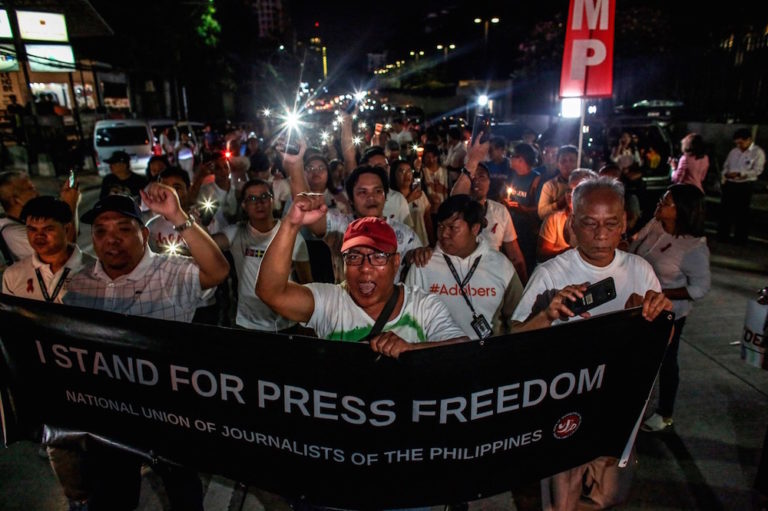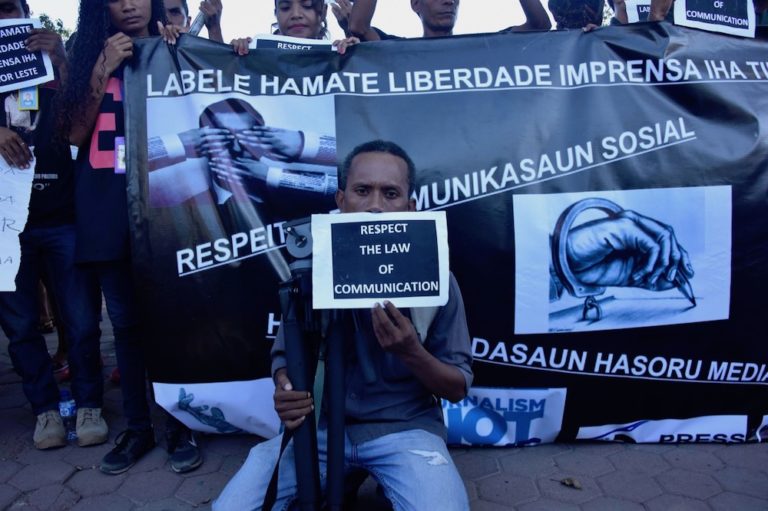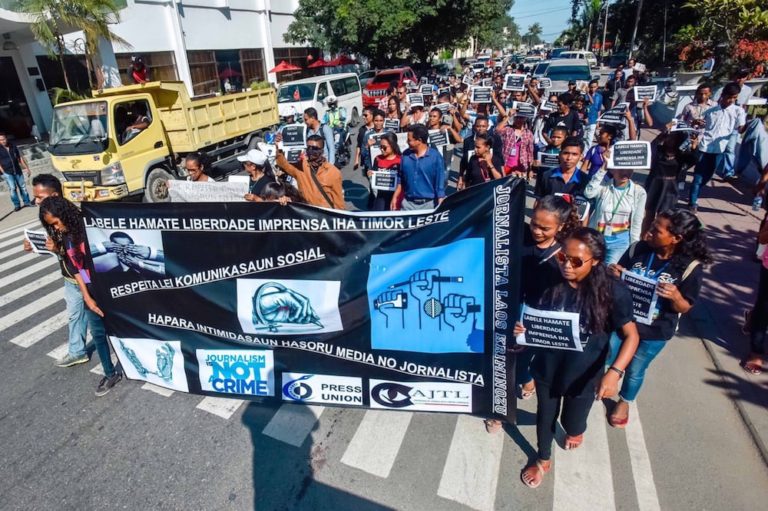(PINA/IFEX) – Threats to kill Australian journalists and United Nations (UN) staff in East Timor have been condemned by the UN mission there, the “Sydney Morning Herald” reported on 1 June 1999 (local date). David Wimhurst, spokesman for the UN Assistance Mission in East Timor (UNAMET), said the UN would demand that Indonesian police arrest […]
(PINA/IFEX) – Threats to kill Australian journalists and United Nations (UN)
staff in East Timor have been condemned by the UN mission there, the “Sydney
Morning Herald” reported on 1 June 1999 (local date). David Wimhurst,
spokesman for the UN Assistance Mission in East Timor (UNAMET), said the UN
would demand that Indonesian police arrest “bullies” who have made repeated
threats to kill journalists and UN staff, the newspaper said.
**Updates IFEX alerts of 28 May, 25 May, 18 May, 10 May, 21 April, 20 April
and 29 March 1999**
The head of the mission, Ian Martin, who was due to arrive in Dili on 31
May, would receive reports on the threats by pro-Indonesian militia “which
we take all very seriously,” Wimhurst told the “Sydney Morning Herald”.
Asked about threats made to journalists by Eurico Guterres, the leader of
Aitarak, a pro-Jakarta paramilitary group accused of killing sprees,
Wimhurst said Martin would raise with Indonesian authorities their failure
to arrest those who use threats of violence to intimidate people ahead of a
ballot on possible independence. But Wimhurst said the UN hoped that as more
UN officials and journalists arrived in East Timor “the situation will calm
down and these threats start to diminish.”
On 30 May, Guterres, a candidate for Indonesia’s ruling Golkar party in next
week’s parliamentary elections, referred to Australian journalists as the
“most extreme,” the “Sydney Morning Herald” said. He said that if any come
to East Timor who do not report what he says accurately “I will certainly
kill them.” In April, Guterres urged militiamen at a rally in the East Timor
capital, Dili, to declare war on the family of Manuel Carrascalao, a
prominent pro-independence leader. Soon afterwards about 100 armed
militiamen stormed Carrascalao’s house, killing twelve people, the newspaper
said.
Background Information
East Timorese are scheduled to vote on 8 August in a referendum on possible
independence from Indonesian rule for the former Portuguese colony of
800,000 people. Six international media workers were killed when Indonesia
invaded East Timor in 1975. Organisations such as the International
Federation of Journalists (IFJ) and Australian colleagues have called for
investigations into continuing allegations they were deliberately killed by
Indonesian forces or forces under Indonesian control (see IFEX alerts).
Indonesian and Australian journalists’ organisations plan to open a media
safety office in East Timor, Australian Associated Press (AAP) reported on
25 May 1999. It comes amidst continuing threats to journalists trying to
cover growing violence in the lead up to the August referendum.
On 24 May, the “Sydney Morning Herald” reported that the Australian embassy
in Jakarta had sought reassurances from Indonesian authorities over threats
made against the paper’s correspondent and photographer in Dili. The
Australian ambassador, John McCarthy, said he had asked embassy officials to
seek an assurance about the safety of correspondent Mark Dodd and
photojournalist Jason South after a group opposing East Timor independence
issued a statement accusing them of bias and declaring “blackmailers should
be stopped.”
International journalists have reported they are being forcibly stopped from
going to areas in East Timor where there are reports of killings by
pro-Indonesian forces. On 18 May, AAP correspondent John Martinkus said
attempts by journalists and relief workers to reach the areas were stopped
at gunpoint by pro-Indonesian militia forces. Earlier, international
journalists attempting to cover a renewed rampage by pro-Indonesia
militiamen in the East Timorese capital, Dili, were attacked and threatened,
the “Sydney Morning Herald” reported on 10 May.


